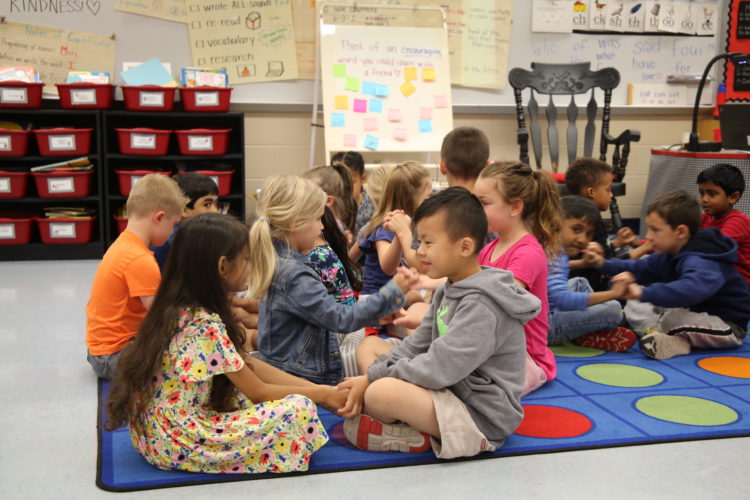Oct. 12, 2018 – Bullying is a topic that is often discussed, but not as often understood. In honor of Bully Prevention Month we asked the district’s Director of Bully Prevention, Heather Watson, to help shed some light on what bullying is and how we as students, parents, teachers, adults, and community members could collectively address it.
Q: What is the definition of bullying?
H: Everyone thinks they know what bullying is, but it’s not always simple. Bullying is systematically and chronically inflicting physical or phycological pain on one or more people. Three specific characteristics that identify bullying are as follows:
-
The behavior must be repeated. Bullying does not just happen once
-
The bullying is intentional and intended to harm
-
The bullying is directed to someone with less power
Ultimately, it’s about power. That power can be real or perceived, and it can have nothing to do with physical power. Other forms of power include socioeconomic status, popularity, and academic differences.
Q: Isn’t teasing light-hearted? Something meant as a joke?
H: Teasing may start light-hearted, but it’s important to stop bullying from its roots. Teasing can lead to holding grudges and may never end. We can prevent bullying in the classroom by stopping the teasing as soon as it begins.
Q: How should a student address a bully?
H: When kids hear “stand up against bullying” they interpret it as “fight back”. We don’t want that to happen. We want to emphasize that violence is not tolerated in any circumstance. If a student is a victim of bullying or sees someone being victimized, we ask that they report the bullying to a teacher or trusted school employee. We can only help what we’re aware of, so reporting as soon as possible is key.
Q: Does a student have to tell a teacher or can they report it to anybody?
H: A student can report bullying to anyone in the school system that they trust. It doesn’t matter if it’s a teacher, a guidance counselor or a police officer.
Q: What if a student is scared of reporting their situation?
H: If a student is worried about reporting in person, they can report anonymously online, through text or through email. Students should also be aware that reporting the situation can only make it better. Like I said, we can only address what we’re aware of.
Q: What’s the biggest piece of advice you have for parents of students?
H: Communication with your child is everything! Having honest, although sometimes hard, conversations with your student is the best thing you can do. Starting with positive behaviors at home will translate to the classroom. Also, keep an eye on your student’s social media! That’s one of the biggest insights you have into your student’s social life.
If you or someone you know is being affected by bullying, please report it.
You can report online on our website, by calling (904) 390-2255, or by texting or emailing 390CALL@duvalschools.org.








